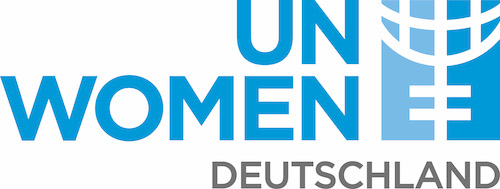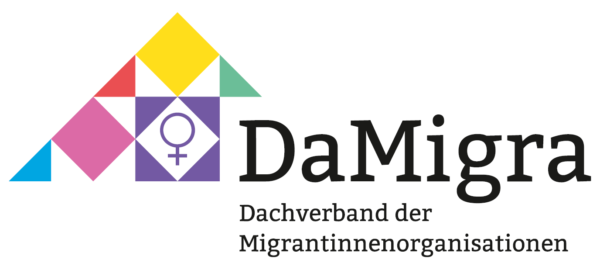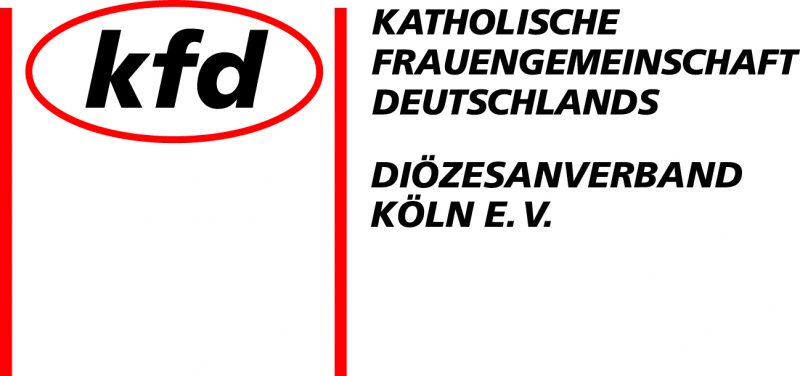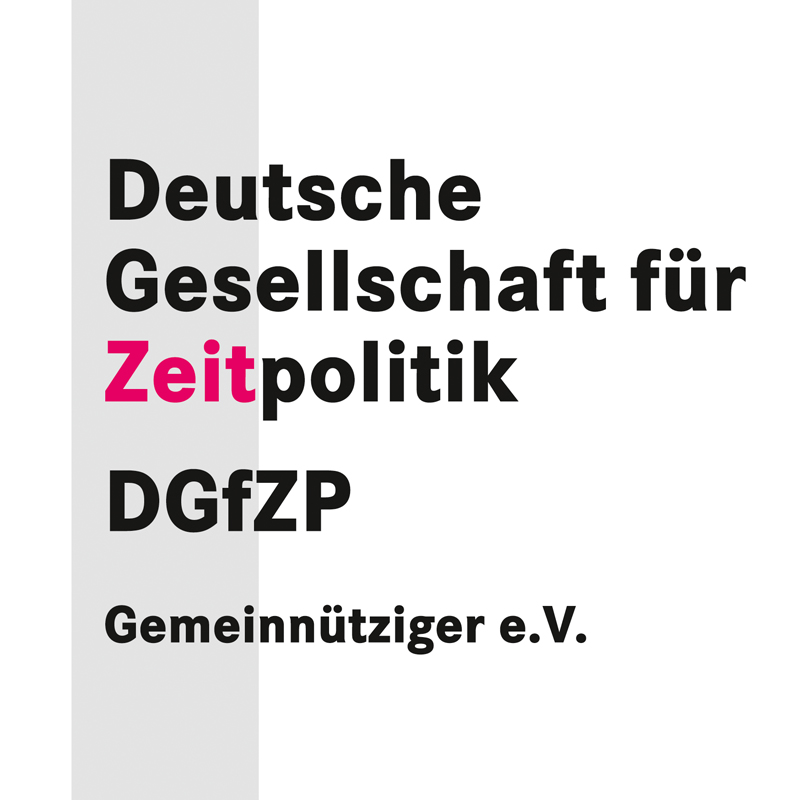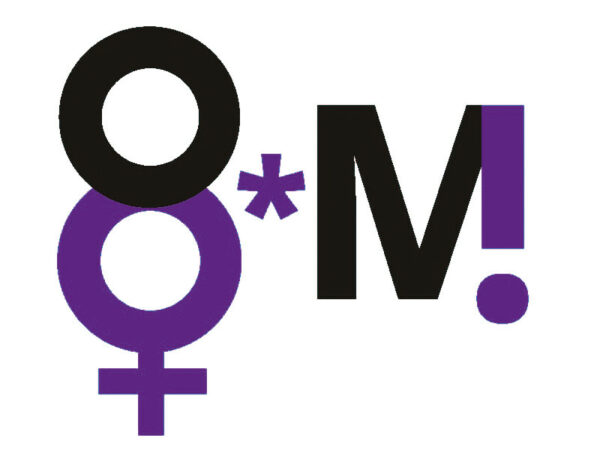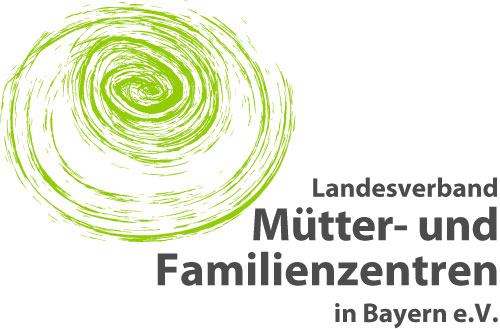The EQUAL CARE Manifesto
We all rely on the care and attention of others over the course of our lives. That applies just as much to new-born babies as to pre-school and primary school children, but also as young adults, professionals, when we are ill or have a disability, and of course in old age, we benefit time and again in our daily lives from the care work1 of others; our health, well-being, quality of life and social interaction2 all depend on it.
This care work and the mental load3 are predominantly born by women and girls – either unpaid or underpaid. That leaves them with less, sometimes absolutely no time for paid work, for further and continuous education, and thus with less or no income whatsoever. Globally, women carry out over 12 billion hours of unpaid care work (Oxfam study 20205). If they were paid even minimum wage, this sum would be 24 times greater than the turnovers of the tech giants Apple, Google and Facebook put together. And German GDP would be approximately a third higher than reported in overall calculations thus far (Wirtschaft und Statistik 2/20166). However, private care work does not feature among these economic KPIs which serve as a nation’s ‘measure of wealth’, despite being the foundation of all economic activity. Nevertheless, companies take it as read that they can rely upon it without covering a share of the costs. This shows how closely linked the care and the climate crises are: in both instances, resources are exploited for individual profit maximisation, while society is left to bear the consequences.
Economists and economic experts seldom broach the subject. The care sector7 is the largest economic sector, and again here, two thirds of paid care work worldwide is carried out by women. The percentage of women is even higher in Germany. In 2019 it was 84.2% in the medical professions, ambulance service and in care, and as high as 89.6% in childcare. Moreover, the working conditions and wages in female-dominated care professions by no means tally with the high qualifications and multifaceted care services required on a daily basis.
How can it be that, when compared internationally, a nation as wealthy as Germany has such an extremely poor allocation of staff for care professionals and midwives (verdi 201710) and is so far behind Japan, Norway, the Netherlands and Belgium? It is a pretentious strategy to seek to master the national care crisis with healthcare professionals and underpaid domestic workers from other countries, often with unclear residence status. Global care chains11 have in the past already seen healthcare and care professionals being enticed away from their countries of origin, where they are also desperately needed (“care-drain”12), or care staff being deployed in ‘24-hour indoor care’ who are wholly inadequately qualified to perform such care duties. The consequences are also highly problematic for those people in need of care and assistance in Germany, as has recently become more apparent than ever. Many domestic workers are returning to their countries of origin due to the Corona pandemic, and it is currently completely unclear as to who will continue to provide private domestic care to those in need.
Although on average women in Germany work one hour more per day than men (unpaid and paid), there is currently a considerable pay gap of 21% (23% worldwide). In the ‘rush hour’ of life in which important decisions relationship, career and family planning decisions are made, women take on more than double the amount of socially required unpaid care work than men. The gender care gap is particularly high at 110.6% at the age of 34 (Klünder 201714). Mothers are often accused of having made an “unfortunate life planning” decision because they decided to have children. Even after returning to work they remain responsible for care work, often also for relatives in need of care, and have to come to terms with losses in income which are justified as “human capital loss due to interruption” (Galler, 199115). This inequality is intensified in times of closed nurseries and schools and increasing numbers of ill people, leading to an even greater burden. The fact that the needs of children were completely overlooked in the initial reactions to the coronavirus pandemic, with the focus exclusively on health issues and economic interests, demonstrates that parents, above all mothers, are expected time and again to master this Utopian balancing act in all aspects of life on their own.
The disadvantageous position of women due to the gender care gap becomes most evident when looking at the pension gap. Up to 75% of women currently aged between 35 and 50 will draw a pension which is below the current Hartz-IV unemployment benefit level (Boll 201616). The unequal distribution and systematic devaluation of care work consequently creates inequality in income, wealth, time and influence between men and women, and exacerbates existing global inequality between rich and poor. Men possess 50% more wealth than women on a global level. By the same token, the gender lifetime gap contrasts the economic, social and political disadvantage of women: on average, men live five years less than women, which can also be explained by (self) care not being part of the hegemonic image of masculinity. However, now is not the time to apportion blame, nor to tot up the advantages and privileges of some and the sacrifices and disadvantages of others. Rather, it is a question of equitable coexistence in families and other areas of responsibility in Germany and worldwide; it is a question of the fair distribution of care work, irrespective of gender, income or origin, it is a question of equality and respect!
We encourage all people who have a care responsibility, be it professional, private or voluntary, to join forces and fight for a fundamental transformation of the system and its values. We appeal to all those people who are currently clearly experiencing how much they personally benefit from care work by others to no longer underestimate the financial and immaterial value of care and to demonstrate their solidarity by supporting the long overdue fight for more care equality, also after the coronavirus pandemic. Care work is not only essential, it is the foundation of our system!
The current situation in spring 2020 has forced us all to pause for thought, the system as we previously knew it has been put on hold. If the easing of restrictions and support programmes are now being discussed to mitigate the effects of the pandemic on the various social sectors, the essentiality of care work must be the guideline. We must accept a system being put back into place after the pandemic which is only very partially up to the current challenges and which does not give sufficient recognition to unpaid and underpaid care work.
We therefore appeal to all decision makers in industry, science and politics to support us in this cause and commit to the fair distribution of care work, income and wealth and to corresponding framework conditions. In particular, we request the Federal Government to finally implement the existing laws and agreements and to advocate for financial and immaterial recognition and a fair distribution of care work worldwide. The care and climate crises and current experiences during the coronavirus pandemic must be seized as an opportunity to comprehensively rethink and sustainably change the existing economic model!
Our demands:
I – Acknowledgement and appreciation
- Portrayal of value creation from unpaid care work in macroeconomic accounting (e.g. gross domestic product) as it is decisive for social prosperity.
- The development of a cohesive strategy both for the greater appreciation of unpaid care work and for the revaluation and financial upgrading of care professions (SAHGE professions)17.
- Standardisation of social insurance for private care work, be it childcare, welfare or care, with equal appreciation in old age provisions. In doing so, the Federal Government must also make a commitment within development cooperation, e.g. by implementing a global fund for social security to (also) improve pensions, child support and unemployment benefits in poor countries.
- The introduction of financially secured family working hours and flexible time budgets for care work provided for children, the ill and relatives in need of care, coupled with actual remuneration (care allowance, e.g. to the sum of parental benefits).
- Investments in general child support, support of older people and the care of people with disabilities, as well as universal access to non-fee paying public education, healthcare, access to water, sanitation facilities and residential energy systems must be ensured by governments worldwide.
II – Fair distribution
- The consistent implementation of existing laws and guidelines on Länder and national level, in particular of the BMFSFJ care charter, the UN Disability Rights Convention, and the recommendations of the second equality report of the Federal Government and the ‘National Health Goal. Health before and after birth’, and the enshrinement of children’s rights in the constitution as provided for in the coalition pact.
- Gender, care and diversity aware pedagogy along the entire childcare and education chain. The development of a care CV of equal standing to a professional CV must be introduced as an educational goal.
- The support and promotion of equal work sharing in families and communities of responsibility through alternative employment models, e.g. a fundamental reduction of working hours and a work-care model18. In particular, that includes tax legislation (splitting taxation for married couples) and supportive measures (parental benefit +) and an expansion of non-transferable (basic) parental benefit months.
- Pay equality19 between women and men under consideration of the causal origins of the pay gap and care gap. Implementation of legally prescribed pay transparency.
- Assumption of care responsibility by private sector enterprises. Appreciative measures and contributions which reward private and in-house care work and secure the livelihoods and health of care providers are required.
- The solution of one’s own care crisis must not be detrimental to other nations and care providers’ rights must be guaranteed and protected. A first necessary step is the implementation of ILO convention 189, ‘Domestic Workers Convention’20
III – Structural support and framework conditions
- Renunciation of the primacy of informal care in favour of an expansion of professional support offers to enable mixed care arrangements thus affording everyone a realistic opportunity to continue their professional career path even in the event of care necessities arising. In this respect, municipal support structures / care work centres (e.g. as per the Scandinavian role model) must be established and expanded.
- Better working conditions in all caring professions, for instance reliable staff allocations, no consolidation due to profit orientation, training remuneration.
- Renunciation of per-case flat-rates21 and consideration of follow-up costs / after-effects which arise from unprovided or insufficient care work due to pressures to economise. Factoring-in of lifelong follow-up costs, for which not the individual but rather the structural neglect of care is responsible.
- Influence of caring relatives on decision-making processes: Governments worldwide must facilitate the participation of unpaid carers and other affected persons in political fora and processes on all levels and invest resources into the collection of comprehensive data to be able to assess the effects of policies on carers. This also includes the inclusion of civil society stakeholders, e.g. local women’s rights organisations.
- Comprehensive education of care workers regarding their rights, in particular caring relatives, transnational domestic workers and young carers22.
- Simple and legal access for all to household services through the introduction of subsidised vouchers23 (as stipulated in the Federal Government’s current coalition pact!) to also reach households with medium and low incomes and reinforce certified service providers.
- Consider the ‘social impact’ when subsidising companies and in particular make sustainable care and environmental protection concepts a condition when allocating contracts, public funding and loans. Create incentives for ‘caring companies’ with respect to nature, employees and consumers (corporate social responsibility24).
First signatories
- Dr. Sonja Bastin, Bremen, Forschungszentrum Ungleichheit und Sozialpolitik (Uni Bremen)
- Jenny Balfer, Bonn
- Juergen Schaefer, Sankt Augustin
- Heiner Fischer, Krefeld
- Aura-Shirin Riedel, Bornheim
- Robert Franken, Köln, Male Feminists Europe
- Ruth Friedrich, Bonn
- Jana Rapp, Bonn
- Birgit Happel, Aschaffenburg, Geldbiografien
- Silke Kirch, Frankfurt
- Lina Hellmich, Bonn
- Christine Finke, Konstanz, Autorin und Aktivistin
- Gertrud Hennen, Bonn, Wirtschaftsförderung Bundesstadt Bonn
- Stephanie Clemens-Krämer, Bonn, Gleichstellungsbeauftragte der Bundesstadt Bonn
- Birgit Adamek, Landeshauptstadt Erfurt, LAG der kommunalen Gleichstellungsbeauftragten Th
- Dr. Charlotte Echterhoff, Sankt Augustin, MenschFrau
- Pia Maria Federer, Freiburg, Fraktion Die Grünen Freiburg
- Dr. Regina Frey, Berlin
- Nils Pickert, Münster
- Gerit Sonntag, Bonn, Mother Hood e.V.
- Sigried Boldajipour, Berlin, Deutscher Hauswirtschaftsrat
- Elfriede Harth, Offenbach/Main, Care Revolution Rhein-Main
- Prof. Dr. Angelika Sennlaub, Rheine, Deutsche Gesellschaft für Hauswirtschaft e. V.
- Brigitte Binder, Bonn
- Ute Lange, Bonn
- Alexandra Geese, Bonn, Bündnis 90/Die Grünen
- Elke Küpper, Bonn
- Nina Windisch, Köln
- Barbara Unmüßig, Berlin, Heinrich-Böll-Stiftung
- Gisela Bock, Berlin, Freie Universität Berlin
- Gert Scobel, Sankt Augustin, Hochschule Bonn-Rhein-Sieg
- Almut Helvogt, Worpswede
- Meike van der Kamp, Königswinter
- Leoni Pytlik, Köln
- Barbara Fröde-Thierfelder, Bonn
- Anika Kup, Wiesbaden
- Bernhard Emunds, Fankfurt am Main, Nell-Breuning-Institut
- Brigitta Meyer, Filderstadt Landesfrauenbeauftragte DIE LINKE. Landesverband Baden-Württemberg
- Nina Klünder, Gießen
- Frauke Linne , Bonn, Frauen*Streik Bonn
- Prof. Dr. Torsten Meireis, Berlin, Berlin Institut for Public Theology, Humboldt-Universität zu Berlin
- Philipp Schaps, Aachen
- Dorothea Simpfendörfer, Merzhausen, Deutscher Hauswirtschaftsrat
- Stefan János Wágner, Bonn
- Jochen König, Berlin
- Lisa Neher, Stuttgart, Landesfrauenbeauftragte DIE LINKE. Landesverband Baden-Württemberg
- der Sprecherinnenrat, Stuttgart, Landesarbeitsgemeinschaft Frauen DIE LINKE. Baden-Württemberg
- Margit von Kuhlmann , Bonn
- Sebastian Scharte, Köln, Willi-Eichler-Akademie e. V.
- Hanna Völkle, Berlin, EAF Berlin
- Gerda Holz, Frankfurt am Main
- Judith Hammerschmidt, Bonn
- Annette Dabs, Bochum, Deutsches Forum für Figurentheater
- Dörte Schall, Bonn, NRW SPD
- Claire Funke, Kronach, Bloggerin und Aktivistin
- Prof. Dr. Mechthild Wolff, Landshut, Hochschule Landshut Fakultät Soziale Arbeit
- Henning von Bargen, Berlin, Leitung Gunda-Werner-Institut
- Vaclav Demling, Bonn
- Babett Görnert, Bochum
- Julia Sykora, Bonn
- Brigitte Jacobs-Hombeuel, Bonn, Frohes Schaffen e.V.
- Dagmar Uhlig, Stuttgart, LAG Frauen von DIE LINKE. Baden-Württemberg
- Lisa Karoline Ruppel, Berlin, Oxfam Deutschland
- Angela Siebold, Bochum, Frauenbeirat der Stadt Bochum
- Milena Rabe, Bonn
- Ursula Schukraft, Stuttgart, Deutscher Hauswirtschaftsrat, Vizepräsidentin
- Prof. em. Dr. phil. Ronald Lutz, Erfurt, University of Applied Sciences Erfurt
- Gaby Pilgrim, Bad Homburg v. d. Höhe, Kommunale Frauenbeauftragte Stadt Bad Homburg
- Dr. Elisabeth Kessler-Slotta, Bochum, Bundesvorsitzende des Deutschen Verbandes Frau und Kultur e.V.
- Kathrin S. Kürzinger, Bonn, Evangelische Akademie im Rheinland
- Regina Umbach, Bonn
- Sigrun M. Karlisch, Münster
- Ute Pfaff-Hamann, Hanau
- Jens Krabel, Berlin
- Claudia Krämer, Bruchköbel, Frauenbeauftragte Stadt Bruchköbel
- Gesine Fuchs, Luzern/Schweiz, Hochschule Luzern – Soziale Arbeit
- Roswitha Kießling, Hanau
- Astrid Mönnikes, Köln
- Andrea Laus, Hanau
- Laura Fröhlich, Remseck, frölich im text
- Hildegard Leven, Bonn, kfd Diözesanverband Köln
- Barbara Straub, Esslingen am Neckar, Chancengleichheitsbeauftragte
- Doris Achelwilm, Bremen, MdB, Sprecherin der Fraktion DIE LINKE für Gleichstellungs-, Queer- und Medienpolitik
- Prof. Dr. Ina Kerner, Koblenz, Universität Koblenz-Landau – Politische Wissenschaft
- Dr. Insa Schöningh, Berlin, Bundesgeschäftsführerin, evangelische arbeitsgemeinschaft familie e.V.
- Simone Thomas, Freiburg, Frauenbeauftragte der Stadt Freiburg
- Michaela Hofmann, Köln
- Stefanie Nutzenberger, Berlin, Frauen- und Gleichstellungspolitik, ver.di Bundesvorstand
- Christina Erdmenger, Erfurt, FrauenZentrum Erfurt
- Elisabeth Bungartz, Sankt Augustin, kfd Kath.Frauengemeinschaft Deutschlands
- Sabine Riescher, Bruchsal, Gleichstellungsbeauftragte
- Rosemarie Daumüller, Stuttgart
- Elisabeth Schmitz-Janßen, Köln, kfd-Diözesanverband Köln
- Uwe Hamann, Hanau
- Mareike Bröcheler, Stuttgart
- Erich Stutzer, Stuttgart
- Aysel Osmanoglu, Bochum, GLS Bank
- Christina Böttcher, Bonn
- Dr. Elisabeth Stiefel, Köln, Feministische Ökonomin
- Helene Wildfeuer, Berlin, dbb bundesfrauenvertretung
- Diana Bayer, Ulm, Frauenbüro Stadt Ulm
- Dr. Inge Maier-Ruppert, Lappersdorf, Fortbildung und Beratung sozialer Einrichtungen
- Karin Woyta, Göppingen, Staufen Arbeits- und Beschäftigungsförderung gGmbH
- Ute Latzel, Limburg, Bundesverband der Mütterzentren e.V.
- Barbara Stiegler, Bonn
- Elisabeth Bücking, Sölden
- Ina Praetorius, CH-Wattwil
- Ulla Schmidt, Aachen, MdB, SPD-Bundestagsfraktion
- Corinna Leenen, Dortmund
- Sonja Elser, Lorch, AsF Landesvorsitzende Baden-Württemberg
- Monica Kaufmann, Erfurt, Gleichstellungsbeauftragte, Thüringer Ministerium für Umwelt, Energie und Naturschutz
- Barbara Hauenstein, Dortmund
- Brigitte Triems, Berlin, Vorsitzende Demokratischer Frauenbund e.V.
- Julia Herr, Berlin
- Fariha Anjum, Bad Homburg, Frauenorganisation Lajna Imaillah der Ahmadiyya Muslim Jamaat Deutschland KdöR
- Regina Czajka, Bochum, Stadt Bochum Referat für Gleichstellung, Familie und Inklusion
- Mara Mürlebach, Bonn, FEMNET e.V.
- Birgitt Wölbing, Heilbronn, Arkus gGmbH
- Doreen Noack, Jena
- Renate Krings, Dormagen
- Victoria Huszka, Bonn
- Katja Kipping, Berlin, Vorsitzende der Partei DIE LINKE
- Dorothee Land, Erfurt, Evangelische Kirche in Mitteldeutschland
- Marion Böker, Berlin, Direktorin Beratung für Menschenrechte, Menschenrechtsverteidigerin, unabhängige Expertin
- Helena Eisner, Erfurt, Landesfrauenrat Thüringen e.V.
- Michelle Becka, Würzburg, Universität Würzburg
- Karin Jurczyk, München, Deutsche Gesellschaft für Zeitpolitik
- Thomas Krüger, Bonn, Bundeszentrale für politische Bildung
- Florian Ruland, Berlin, Equal Care App
- Johanna Fröhlich Zapata, Berlin, Alltagsfeminismus
- Adelheid Bisecker, Bremen, Netzwerk Vorsorgendes Wirtschaften
- Christa Stolle, Berlin, TERRE DES FEMMES
- Ute Mattis, Guben, Haus der Familie Guben e.v.
- Tina Groll, Berlin, Deutsche Journalistinnen- und Journalistenunion (dju) in ver.di
- Barbara Thiessen, München, Hochschule Landshut sowie Care.Macht.Mehr
- Hans-Jürgen Kastner, Brake (Unterweser)
- Petra Nägele, Esslingen
- Andrea Molik, Guben, Haus der Familie Guben e.V.
- Maria Bitzan, Tübingen, Forschungsinstitut tifs (Tübinger Institut für gender- und diversitätsbewusste Sozialforschung und Praxis (tifs) e.V)
- Christine Henry-Huthmacher, Bonn
- Gabriele Neuhöfer, Niederkassel, Sprecherin der LAG kommunale Frauenbüros/ Gleichstellungsstellen NRW
- Melanie Hänsel, Münster, Sprecherin der LAG kommunale Frauenbüros/ Gleichstellungsstellen NRW
- Monika Björklund, Beckum, Sprecherin der LAG kommunale Frauenbüros/ Gleichstellungsstellen NRW
- Prof. Christel Althaus, Stuttgart, Vorsitzende Landesfamilienrat Baden-Württemberg
- Elisabeth Wilfart, Düsseldorf, Sprecherin der LAG kommunale Frauenbüros/ Gleichstellungsstellen NRW
- Yvonne Tertilte-Rübo, Kleve, Sprecherin der LAG kommunale Frauenbüros/ Gleichstellungsstellen NRW
- Dr. Antje Schrupp, Frankfurt am Main
- Gudrun Eichelmann, Esslingen, Frauen helfen Frauen Esslingen e.V.
- Yvonne Baum, Emmendingen, Gleichstellungsbeauftragte
- Jasmin Horber, Stuttgart, Mütterforum Baden-Württemberg e.V.
- Andrea Laux, Stuttgart, Mütterforum Baden-Württemberg e.V.
- Brigitte Liesner, Essen, Gleichstellungsbeauftragte
- Jessica Rosenthal, Düsseldorf, Vorsitzende der NRW Jusos
- Lena Schneck, München
- Emese Dömösi, worldwide, Mother Centers Int. Network for Empowerment
- Karsten Finke, Bochum, AG Queer Feminismus der Bochumer Grünen
- Ulrike Linner, Erlangen
- Renate Stein, Argentinien / Buenos Aires, MINE
- Prof. Dr. Christine Küster, Fulda, Hochschule Fulda, FB Oecotrophologie
- Christine Lönhard, Esslingen
- Daniela Erdmann, Köln
- Ingrid Bregenzer, Salem Baden-Württemberg, Mütterzentren Internationales Netzwerk für Empowerment MINE e.V.
- Patricia Cammarata, Berlin
- Sybille Möller, Berlin, MIA – Mütterinitiative für Alleinerziehende
- Laura Velis, Frankfurt am Main, GFFB gGmbH
- Carolin Christin Häuser, Frankfurt am Main, GFFB gGmbH
- Monika Brechtel, Frankfurt am Main, Zentrum für Weiterbildung gGmbH
- Kira Lizza, Bonn, Haus der FrauenGeschichte e.V.
- Frauke Fischer, Königswinter, Gleichstellungsbeauftragte
- Ulrike Harder-Möller, Enger, Gleichstellungsbeauftragte der Stadt Enger
- Kirsten Max, Hilden, Gleichstellungsbeauftragte der Stadt Hilden
- Brigitte Feist, Lohmar, Gleichstellungsbeauftragte der Stadt Lohmar
- Jessica Fischer, Jülich
- Angelika Luckner, Bonn, Gleichstellungsbeauftragte des BZSt
- Christiane Reckmann, Berlin, Zukunftsforum Familie e.V.
- Inga Wagenknecht, Gießen
- Tanja Brückel, Kamen, Landesverband der Mütterzentren in NRW e.V.
- Astrid Günther, Euskirchen, Gleichstellungsbeauftragte Kreis Euskirchen
- Maria Noichl, Rosenheim, Bundesvorsitzende der Frauen in der SPD (ASF)
- Birgit Schuster, Erfurt
- Regina Geppert, Offenburg
- Marcel Fratzscher, Berlin, DIW Berlin
- Susanne Veit, München, Landesverband Mütter- und Familienzentren in Bayern e.V.
- Alejandra Roggan, Bremen,
- Daniela Jaspers, Berlin, Verband alleinerziehender Mütter und Väter -Bundesverband e.V.
- Dörte Worm-Kressin, Obernkirchen, Gleichstellungsbeauftragte
- Diana Auth, Bielefeld, FH Bielefeld
- Clarissa Rudolph, Marburg, OTH Regensburg
- Alexandra Scheele, Bielefeld, Universität Bielefeld
- Martin Speer, Berlin, Autor, Berater, HeForShe Botschafter von UN Women Deutschland
- Ulrike Pfaff, Köln
- Dr. Delal Atmaca, Berlin, Geschäftsführerin von DaMigra e.V.
- Wolfgang Schultz, Heidelberg, Gleichstellungsreferent der Pädagogischen Hochschule Heidelberg
- Jannis Schneider, Gießen
- Ingrid Kurz-Scherf, Trier, Philipps Universität Marburg/im Ruhestand
- Katharina Bendt, Hannover
- Katharina Lutz, Bremen
- Katja Dörner, Bonn, Bündnis 90/Die Grünen MdB
- Franziska Laudenbach, Bremen, Zentrum für Arbeit und Politik (Uni Bremen)
- Bettina Mötting, Köln, Gleichstellungsbeauftragte der Stadt Köln
- Heinz Müller, Mainz, Institut für Sozialpädagogische Forschung Mainz gemeinnützige GmbH
- Gabriela Wölki, Oberursel (Taunus), Stadtverwaltung Oberursel (Taunus) Gleichstellungsbeauftragte
- Jutta Allmendinger, Berlin, WZB
- Heike Trappe, Rostock, Institut für Soziologie und Demographie
- Vincent-Immanuel Herr, Berlin, Autor, Aktivist, HeForShe Botschafter von UN Women Deutschland
- Fikri Anil Altintas, Berlin, #HeForShe-Botschafter UN Women Deutschland
- Elfi Scho-Antwerpes, Köln, Stadt Köln, Erste Bürgermeisterin
- Prof. Dr. Wolfgang Schroeder, Kassel, Universität Kassel
- Gerhard Hafner, Berlin, Psychologe, Beratung für Männer – gegen Gewalt
- Susanne Brückner, Baden-Württemberg, Sprecherin Landesarbeitsgemeinschaft der kommunalen Frauen- und Gleichstellungsbeauftragten Baden-Württemberg
- Barbara Wagner, Frankfurt am Main, GFFB gGmbH & Deutscher Hauswirtschaftsrat
- Claudia Zehre, Rinteln, Stadt Rinteln, Gleichstellungsbeauftragte
- Cornelia Möhring, Berlin, MdB, Frauenpolitische Sprecherin der Bundestagsfraktion DIE LINKE
- Dr. Christoph Fantini, Bremen, Universität Bremen
- Charlotte Heidebrecht, Bremen
- Sönke Rix, Berlin, MdB, SPD-Bundestagsfraktion
- Frauke Gützkow, Frankfurt am Main, Gewerkschaft Erziehung und Wissenschaft
- Susanne Häring, Georgsmarienhütte, Stadt Georgsmarienhütte
- Stefan Schwartze, Berlin, Mitglied des Deutschen Bundestages
- Sarah Lutz, Lübbecke, Stadt Lübbecke
- Bettina Körk, Varel, Stadt Varel / Gleichstellungsbeauftragte
- Josefa Redzepi, Kreisstadt Unna, Gleichstellungsbeauftragte
- Roswitha Jankowski, Georgsmarienhütte, Hebammenpraxis
- Katja Eggert, Witzenhausen, Stadtverwaltung Witzenhausen
- Bärbel Spohr, Homberg, Frauenbüro Schwalm-Eder
- Julika Funk, Konstanz
- Prof. Dr. Margrit Brückner, Frankfurt, Frankfurt University of Applied Sciences und Initiative Care.Macht.Mehr
- Ann Kristin Schneider, Osnabrück, Gleichstellungsbeauftragte SG Artland
- Andrea Breßler, Grünstadt, Stadtverwaltung / Gleichstellungsstelle
- Prof. Dr. Michaela Kreyenfeld, Berlin, Hertie School
- Natascha Heumann, Meinersen
- Prof. Dr. Maria Rerrich, München
- Bettina Schweizer, Bremen, Universität Bremen, Referat Chancengleichheit/Antidiskriminierung
- Jan Otto, Freiburg
- Gabriele Wenner, Frankfurt, Frauenreferat Frankfurt
- Katharina Overmann, Magdeburg
- Stefanie Elies, Berlin
- Dr. Sandra Ohrem, Gießen
- Melanie Weise, Bremen
- Andrea Schäfer, Bremen, Referentin der Zentralen Kommission für Frauenfragen, Universität Bremen
- Ulrike Geppert-Orthofer, Berlin, Präsidentin des Deutschen Hebammenverbands e.V.
- Hanna Bludau, Hardegsen, ehrenamtl. Gleichstellungsbeauftragte der Stadt Hardegsen
- Anja Piel, Berlin, Geschäftsführender Bundesvorstand DGB
- Elise Kopper, Bonn, Geschäftsführerin Frauennetzwerk für Frieden e.V.
- Ann-Kristin Rauhe, Uetze, Gleichstellungsbeauftragte der Gemeinde Uetze
- Kirstin Henschel, Hansestadt Osterburg (Altmark)
- Christina van Essen, Düren, Gleichstellungsbüro der Stadt Düren
- Sandra Knör, Sigmaringen
- Amanda Jacobick, Freiburg
- Astrid Brokamp, Vechta, Landkreis Vechta
- Patricia Ehret, Villingen-Schwenningen, Gleichstellungsbeauftragte Landratsamt Schwarzwald-Baar-Kreis
- Lara Carolin Sindt, Ronnenberg, Gleichstellungsbeauftragte
- Florian Leiner, Würzburg, Grüne Jugend
- Prof. Dr. Claudia Gather, Berlin
- Samuel Kuhn, Würzburg
- Elke Hannack, Berlin, Stellvertretende Vorsitzende des Deutschen Gewerkschaftsbundes
- Claudia Kowalzyck, Greifswald, Beauftragte für Gleichstellung und Bürgerbeteiligung der Universitäts- und Hansestadt Greifswald
- Ann-Kristin Rauhe, Gemeinde Uetze, Gleichstellungsbeauftragte Gemeinde Uetze
- Sigrid Gehl, Saarlouis, kommunale Frauenbeauftragte
- Utta Weissing, Harrislee, Gleichstellungsbüro der Gemeinde Harrislee
- J. Schneider, Würzburg
- Christiane Stapp-Osterod, Frankfurt am Main, jumpp- Ihr Sprungbrett in die Selbständigkeit Frauenbetriebe e.V.
- Elke Quandt, Stadt Wolgast, Gleichstellungsbeauftragte
- Sabine Fietz, Ravensburg
- Luca Isabelle Spajic, Würzburg
- Anke Michalsky, Homburg
- Melanie Schröder, Papenburg
- Brunhilde Schieb, Seeheim-Jugenheim (privat), Frauen-und Gleichstellungsbeauftragte
- Christiana Klose, Frankfurt am Main
- Almut Dietrich, Köln
- Pablo Fuest, Vechta
- Heide Trommer, Konstanz, Impact Plus
- Konstanze Morgenroth, Borna, Gleichstellungsbeauftragte Landkreis Leipzig
- Ashok Sridharan, Bonn, Oberbürgermeister der Bundesstadt Bonn
- Alexander Volk, Köln
- Peter Tackenberg, Berlin, stellv. Geschäftsführer DBfK – Deutscher Berufsverband für Pflegeberufe
- Dörthe Jung, Frankfurt
- Frauke Westerholt, Bremen, AG für Familienfreundliches Studium
- Konstantin Mack, Bremen, Stadtrat
- Maria Stuckenberg, Bramsche, Gleichstellungsbeauftragte Stad Bramsche
- Silke Raab, Berlin
- Anja Schürmann, Scheeßel, Gemeinde Scheeßel
- Samuel Kuhn, Würzburg, GRÜNE JUGEND Würzburg
- Antigone Kiefner, Freiburg
- Lotte Roessler, Freiburg
- Kristina Vaupel, Remscheid, Solingen & Wuppertal, GPA Bergisches Städtedreieck
- Markus Lüske, Würzburg

